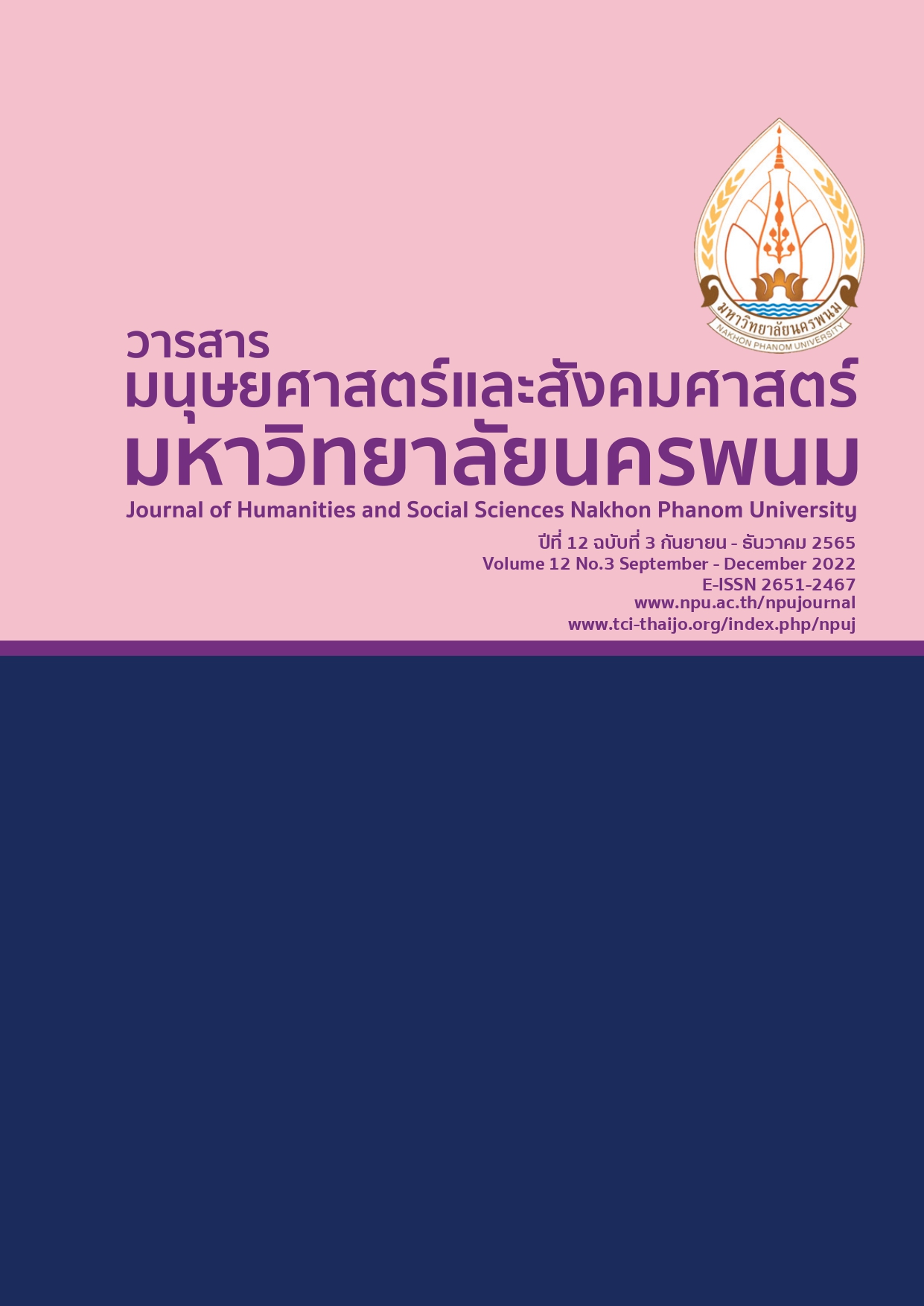Learning Management Using Project-Based Integrated with Critical Thinking Process to Improve Digital Literacy Competency in Technology Subject for Primary 5 Students
Main Article Content
Abstract
The objectives of this study were to study the level of digital literacy competency in Technology subject of Primary 5 students and compare the digital literacy competency in the Technology subject of the Primary 5 students between experimental group after being provided learning management using project-based integrated with critical thinking process and the control group who was taught with the conventional learning management. The sample of this study consisted of the 69 primary 5 students from two classrooms at Fuangfha Wittaya School under Pathum Thani Provincial Educational Office who enrolled in the first semester of 2020 academic year using cluster sampling. The samples were divided into the experimental group (n=34) and the control group (n=35). The research instruments were 1) 4 conventional learning plans total 9 hours ; 2) 4 learning management plans using project-based integrated with critical thinking process total 10 hours; and 3) Five-rating scale digital literacy competency test with a rubric scoring criteria using practical authentic assessment.The statistics used for data analysis were mean, standard deviation, and t-test for Independent samples. The research findings showed that 1) the digital literacy competency in the Technology subject of the Primary 5 students was at a high level, 2) the Primary 5 students’ digital literacy competency in the Technology subject of the experimental group studying through the project-based learning management integrated with critical thinking process was higher than the control group that studied through the conventional learning management significantly at the .05 level which initiated to obtain new knowledge on the development of digital literacy competence for further applications in other grades.
Article Details

This work is licensed under a Creative Commons Attribution-NonCommercial-NoDerivatives 4.0 International License.
References
Best, J. W. (1981). Research in education (4th ed.). New Jersey: Prentice Hall.
Chatchada, D. (2017). Kānphatthanā rūpbǣp khrōng ngān dōi chai thēkniksakhǣmphœ̄ dūai khalāsœ̄wit phư̄a songsœ̄m khwāmkhit sāngsan khō̜ng nakrīan chan matthayommasưksā tō̜n ton [Development of Project-Based Learning Model Using Scamer Technique with Cloud Service to Enhance Creative Thinking of Lower Lewel Secondary School Students]. Master's thesis. Bangkok :Chulalongkorn University.
Child and Youth Media Institute. (2016). Krō̜p nǣokhit nai kānphatthanā laksūt kān rūthao than sư̄ sārasonthēt læ dičhithan phư̄a sāng phonlamư̄ang prachāthipatai [Conceptual framework for developing a media literacy curriculum Information and digital to create Democratic citizens]. Bangkok.
Dusadee, Y. (2014). Kānsưksā kānčhatkān rīanrū bǣp PBL thī dai čhāk khrōngkān sāng chut khwāmrū phư̄a sāngsœ̄m thaksa hǣng satawat thī yīsipʻet khō̜ng dek læ yaowachon : čhāk prasopkān khwāmsamret khō̜ng rōngrīan Thai [The study of PBL learning management obtained from the knowledge-building project to enhance 21st Century Skills of Children and Youth: From the Successful Experience of Thai Schools]. Bangkok : Thipvisut Ltd., Part.
Ennis, R .H. (1985). A logical basis for measuring critical thinking skill. Educational Leadership, 43(2), 44-48.
________. (1987). A taxonomy of critical dispositions and abilities. In J. B. Baron, & R. J. Sternberg (Eds.), Teaching thinking skills: theory and practice. New York: Freeman.
________. (1996). Logical Operation in Classroom, International Encyclopedia of Education. 5: 3129-3139. New York: Pergamon Press. Eysenk, H.J.Arnold.
Guilford, J. P. (1967). The Nature of Human Intelligence. McGraw-Hill, Book Company.
McCleland, D. (1973). Testing for Competence Rather than for Intelligence. American Psychologist. 28(1) : 1-14 ; June, 1973.
Narongwit, S. (2007). Mārūčhak COMPETENCY kan thœ [Let's get to know COMPETENCY]. Bangkok: HR Center.
National Science and Technology Development Agency. (2020). Kān rū dičhithan [Digital literacy]. Retrieved from https://www.nstda.or.th/th/nstda-knowledge/142-knowledges/2632.
Office of the Education Council. (2019). Krō̜p samatthana lak phū rīan radap kānsưksā naphư̄n thān læ radap prathom sưksā tō̜n ton ( Por nưng 3) [Core Competency Framework Basic education level And elementary level Early study (Primary 1–3)]. Bangkok : 21 Century Company Limited.
Office of the National Education Commission. (2005). Sān fan…dūai kān khit [Weave dreams ... by thinking]. Bangkok : Saematham.
Office of the Royal Society. (2015). Thaksa kān khit wikhro̜ sangkhro̜ sāngsan læ kān khit yāng mī wičhāranayān : kārabūn nā kān nai kānčhatkān rīanrū [Critical, synthetic, creative and critical thinking skills : Integration in learning management].
Shet, R. M., Iyer, N. C., Nissimgoudar, P. C., & Ajit, S. (2015,). Integrated experience : Through
project-based learning. New Delhi.
Suppervisory Unit Office of Vocational Education Commission. (2016). Nǣothāng kānčhatkān rīanrū bǣp khrōng ngān pen thān . [Guidelines for learning management The Project-Based Learning]. Nakhon Pathom : Sinthavee Kit Printing Limited Partnership (Headquarters).
Tisana, K. (2016). Pluk lōk kānsō̜n hai mī chīwit hō̜ng rīan hǣng satawat mai [Awaken the teaching world to life. Classroom of the new century]. Bangkok : Sahamit Printing Co., Ltd.
Thida, S. (2019). Kānphatthanā bǣpčhamlō̜ng kān rīan kānsō̜n bon wep dōi chai panhā pen thān phư̄a songsœ̄m kān rū dičhithan samrap naksưksā radap parinyā trī [The Web-Based Instruction Model by Using Problem - Based Learning to Enhance Digital Literacy for Undergraduate Students]. Doctor of Philosophy thesis. Bangkok : Kasetsart University.
Vicharn, P. (2013). Kānsāng kānrīanrū sū satawat thī yīsipʻet [Building learning into the 21st century]. Bangkok : Siam Commercial Bank Foundation.


